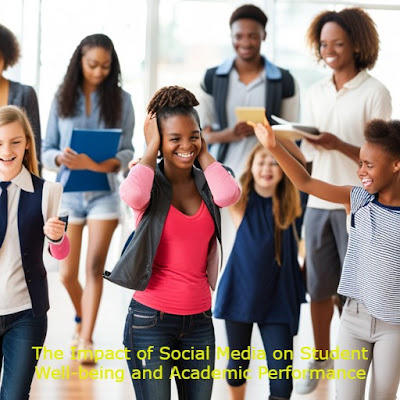Introduction
Social media has become an integral part of our daily lives, profoundly affecting how we communicate, gather information, and socialize. While it offers numerous benefits, such as connecting people across the globe and facilitating the exchange of ideas, it also has its downsides. In recent years, there has been growing concern about the impact of social media on student well-being and academic performance. This article explores the various ways in which social media influences students and the potential consequences it can have on their overall well-being and academic success.
The Ubiquity of Social Media
The rise of social media platforms like Facebook, Instagram, Twitter, and Snapchat has been nothing short of meteoric. According to the Pew Research Center, as of 2021, around 69% of adults in the United States use social media, with the majority of users falling within the age range of 18 to 29 years old. It's safe to say that social media has become an integral part of the lives of today's students.
Social Media and Student Well-being
1. Mental Health: One of the most significant concerns regarding social media's impact on students is its potential to negatively affect their mental health. The constant exposure to carefully curated images and lifestyles on platforms like Instagram can lead to feelings of inadequacy and low self-esteem. Additionally, cyberbullying on social media platforms can be emotionally distressing for students and contribute to anxiety and depression.
2. Sleep Disruption: The addictive nature of social media, combined with the accessibility of smartphones, can lead to sleep disruption among students. Late-night scrolling and notifications can interfere with the quality and quantity of sleep, which, in turn, can impact a student's cognitive function and overall well-being.
3. Procrastination: Social media is a notorious procrastination tool. Many students find themselves succumbing to the temptation of checking their social media accounts when they should be studying or completing assignments. This procrastination can result in lower academic performance and increased stress.
4. FOMO (Fear of Missing Out): Social media often perpetuates the fear of missing out on social events, experiences, or opportunities. Students who constantly compare their lives to those of their peers on social media may feel pressured to engage in more social activities, potentially affecting their academic commitments and well-being.
Social Media and Academic Performance
1. Reduced Focus and Attention: Constant notifications, likes, and comments on social media can interrupt a student's concentration and focus. Research has shown that multitasking between social media and academic tasks can significantly decrease productivity and hinder learning.
2. Decreased Study Time: Excessive use of social media can eat into a student's study time. Instead of spending hours studying or doing homework, students may find themselves spending an equal amount of time scrolling through their social media feeds, leading to a decline in academic performance.
3. Information Overload: While social media can be a valuable source of information, it can also overwhelm students with an excessive amount of data, opinions, and news. This information overload can make it challenging for students to discern credible sources from unreliable ones, potentially affecting their research and critical thinking skills.
4. Negative Peer Influence: Peer pressure plays a significant role in a student's life, both academically and socially. On social media, students may witness their peers glorifying behaviors like excessive partying, substance use, or skipping classes. This can lead to students emulating these behaviors, resulting in poor academic performance.
5. Online Bullying: Cyberbullying on social media platforms can have severe consequences for a student's mental health and academic performance. Victims of online bullying may become socially withdrawn and experience anxiety or depression, making it difficult for them to focus on their studies.
Strategies for Mitigating the Negative Impact
1. Digital Detox: Encouraging students to take regular breaks from social media can help reduce the negative impact on their well-being and academic performance. Setting designated "no-screen" hours or days can promote healthier habits.
2. Time Management: Teaching students effective time management skills can help them balance their academic responsibilities and social media usage. Tools like time blocking and productivity apps can assist in this endeavor.
3. Critical Thinking and Media Literacy: Incorporating media literacy education into the curriculum can help students critically evaluate information they encounter on social media. This empowers them to make informed decisions and avoid falling victim to misinformation.
4. Supportive Environment: Creating a supportive and open environment where students feel comfortable discussing their experiences with social media can encourage them to seek help when needed. Schools and universities can offer counseling services for students facing mental health challenges related to social media.
5. Educational Campaigns: Educational institutions can launch campaigns and workshops to raise awareness about the potential negative consequences of excessive social media use. These initiatives can promote responsible social media usage and well-being.
Conclusion
Social media's impact on student well-being and academic performance is a complex issue with both positive and negative aspects. While social media can offer educational opportunities and facilitate connections, it can also harm mental health, disrupt sleep patterns, and hinder academic success. The key lies in finding a balance that allows students to harness the benefits of social media while mitigating its negative effects.
Educational institutions, parents, and students themselves all have a role to play in fostering responsible social media usage. By promoting digital literacy, time management, and mental health awareness, we can equip students with the tools they need to navigate the digital landscape successfully, maintain their well-being, and excel academically in the modern world.










No comments:
Post a Comment